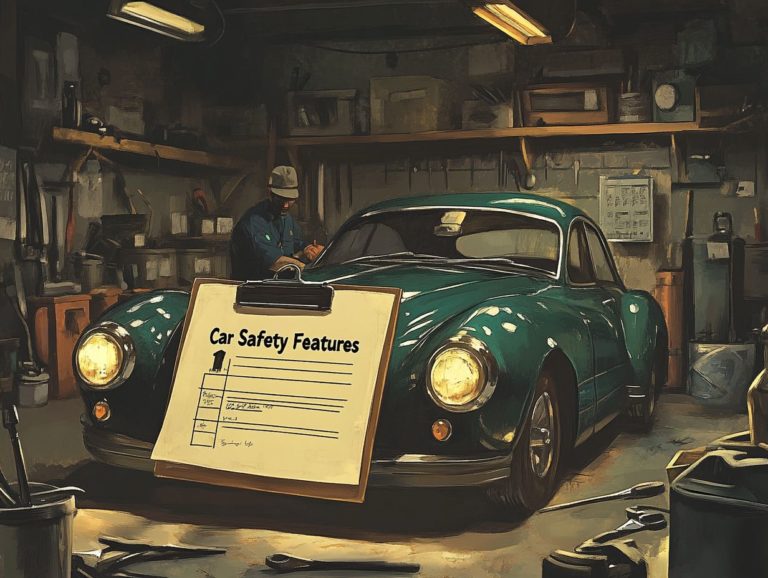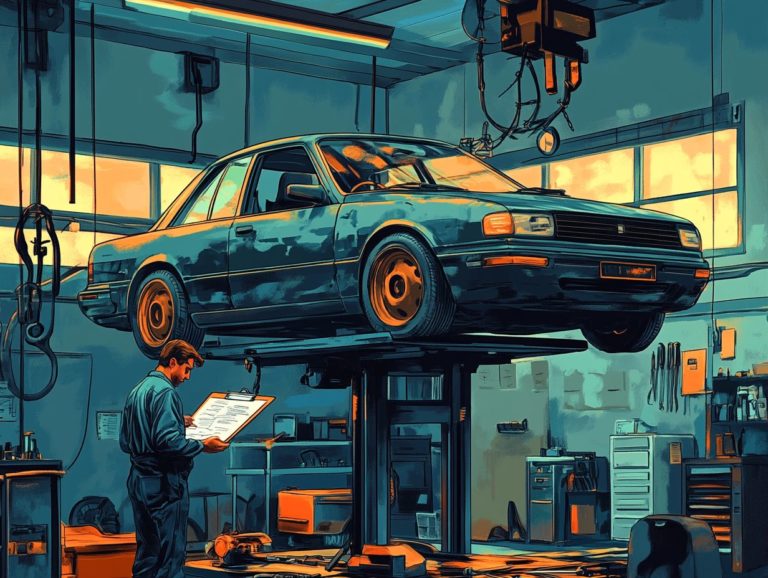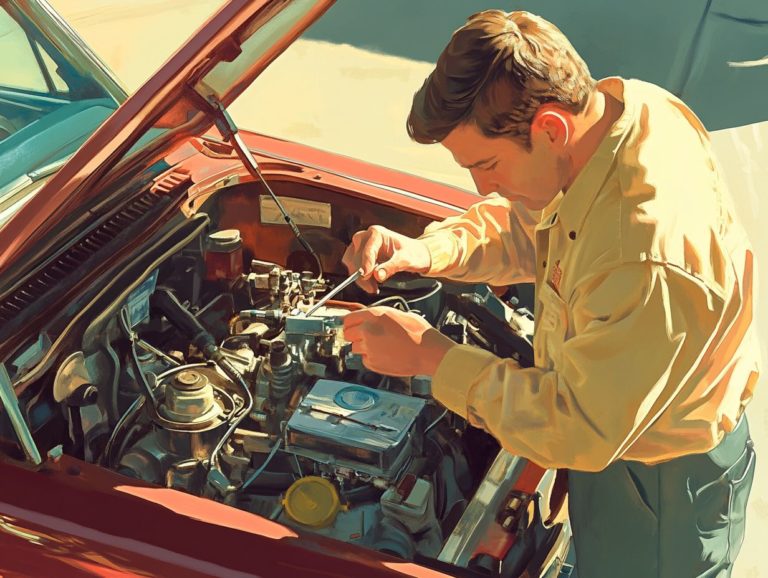How to Interpret Car Inspection Results
Car inspections play a vital role in your journey as a vehicle owner, ensuring safety and reliability every time you hit the road.
Whether you’re buying a new vehicle or taking care of your trusty ride, knowing the different types of inspections like pre-purchase, annual, and state inspections can help you avoid unexpected problems down the line.
This guide sheds light on the purpose of car inspections, helps you interpret the results, and outlines steps to address any concerns that may arise.
With the right knowledge, you can make informed decisions and keep your vehicle running smoothly and efficiently.
Contents
- Key Takeaways:
- Understanding Car Inspections
- Types of Car Inspections
- Interpreting Inspection Results
- What to do After Receiving Results
- Frequently Asked Questions
- What is a car inspection and why is it important?
- How do I prepare for a car inspection?
- What are the common things checked during a car inspection?
- What does it mean if my car fails the inspection?
- How do I interpret the results of a car inspection?
- Can I negotiate the price of a car based on its inspection results?
Key Takeaways:
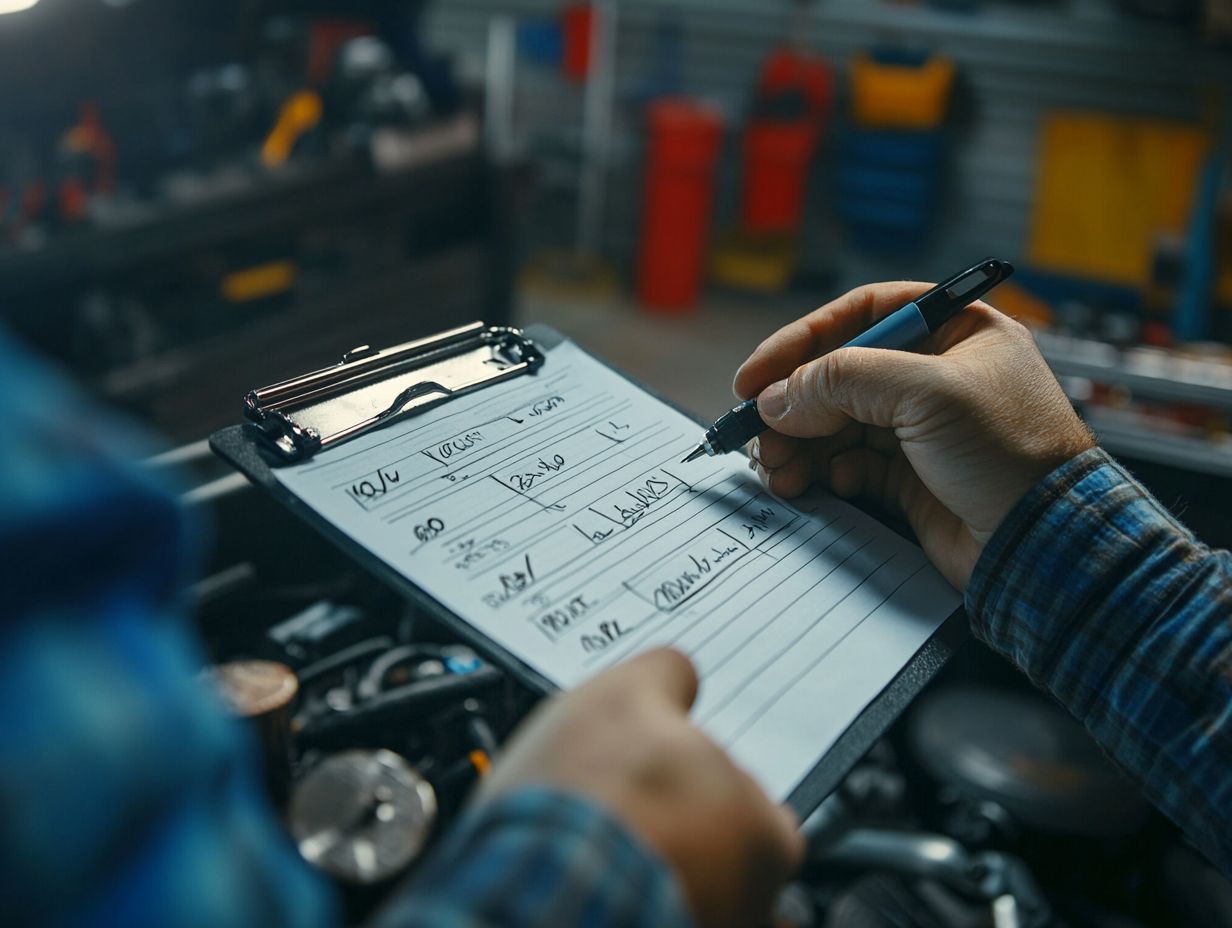
Always prioritize safety when interpreting car inspection results.
Address any immediate concerns, such as safety hazards, before creating a maintenance plan.
Take note of common issues found during inspections, like worn brakes or fluid leaks, and research potential solutions to ensure proper maintenance.
Regular car inspections are crucial for maintaining the overall health and safety of your vehicle.
Be sure to schedule annual or state inspections and consider a pre-purchase inspection before buying a used car.
Understanding Car Inspections
Understanding car inspections is crucial for keeping your vehicle safe and reliable. Knowing what to expect during a used car inspection helps ensure these assessments effectively evaluate your vehicle’s condition and verify it meets safety rules.
Regular inspections help you spot potential issues before they become serious problems, keeping your vehicle in top shape for daily commutes and longer journeys.
Clear communication with inspection stations builds trust and ensures repairs are documented properly. Using digital solutions like Record360 software can streamline inspection results, promoting a proactive approach to vehicle maintenance.
What is a Car Inspection?
A car inspection is a thorough evaluation of your vehicle’s mechanical components and overall condition to ensure safety and reliability on the road. To help with this process, consider reviewing tips for a successful car inspection negotiation.
This process involves detailed visual assessments, where trained technicians examine essential features like brakes, lights, tires, and fluid levels.
The inspection includes a comprehensive review of the engine, suspension, and exhaust systems to identify any potential issues that could lead to costly repairs or unsafe driving conditions.
Once the inspection is complete, you receive a detailed report outlining the findings and any necessary maintenance or repairs. This step helps you identify existing problems and prevents future complications.
Regular evaluations are key to keeping your car safe and performing at its best!
Why is it Important?
Car inspections are essential for maintaining your vehicle s safety and meeting regulatory standards. They help identify mechanical issues and confirm that you meet emissions requirements.
Regular inspections prevent accidents by revealing hidden problems before they escalate into serious mechanical failures on the road. Sticking to a consistent inspection schedule fosters a safer driving environment and enhances your automobile’s longevity.
Maintenance schedules derived from thorough inspection reports enable timely interventions that keep vital components in check. Neglecting these inspections can lead to costly repairs, decreased vehicle performance, and increased safety risks.
This highlights the importance of routine checks for any responsible driver like you.
Types of Car Inspections
You ll encounter various types of car inspections, such as pre-purchase inspections, annual inspections, and state inspections.
Each of these serves a distinct purpose in vehicle maintenance, ensuring your car remains in optimal condition and compliant with regulations.
Don’t wait! Schedule your next car inspection today to ensure your vehicle stays safe and reliable for every journey.
Pre-Purchase Inspection
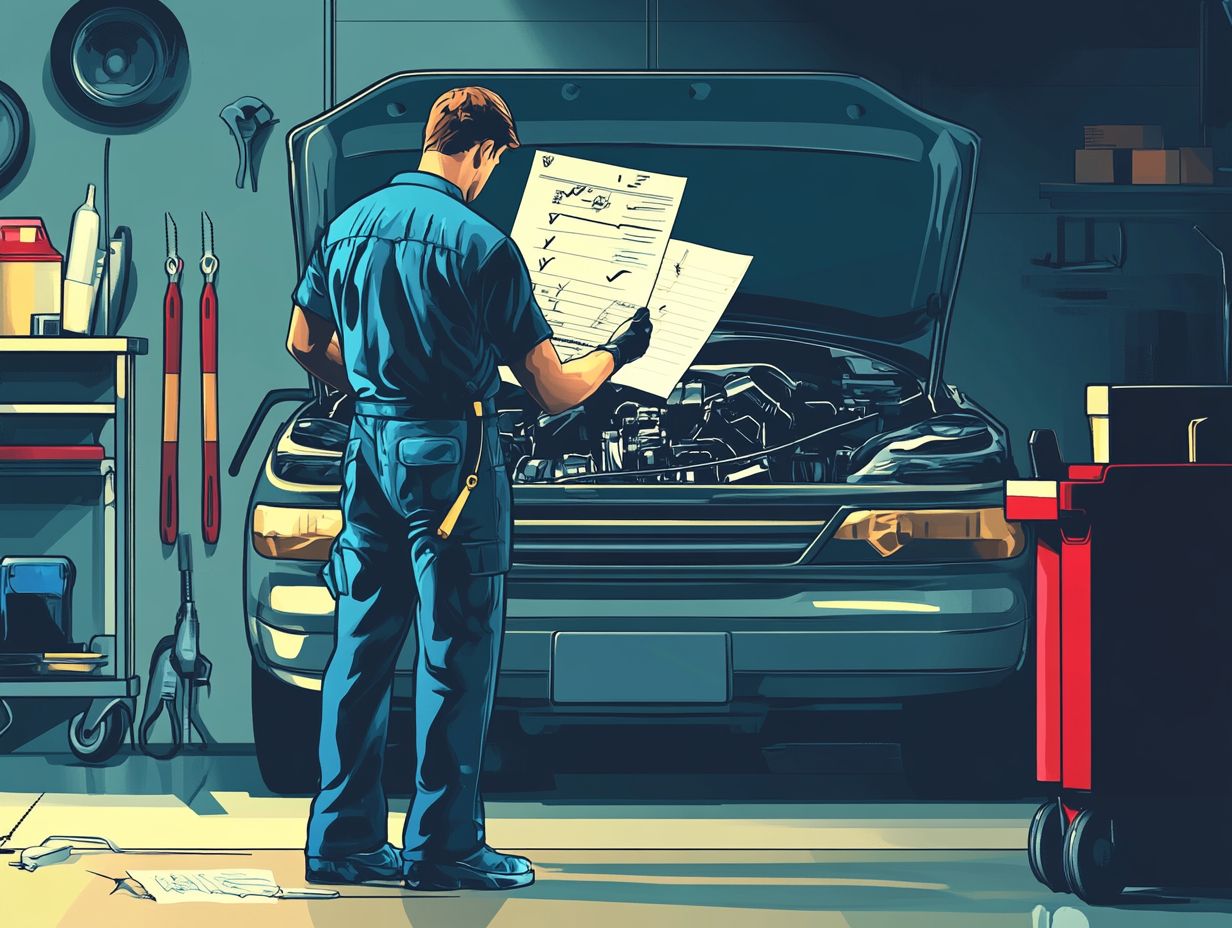
A pre-purchase inspection is a crucial step for prospective vehicle buyers. It offers a detailed assessment that uncovers potential issues that might not be immediately apparent.
This inspection typically involves evaluating key components like the engine, brakes, tires, and suspension. It also includes a review of the vehicle’s overall safety features.
By identifying existing problems, you can determine whether the vehicle is worth its asking price and if any repairs are needed before finalizing the deal.
Understanding the vehicle’s condition helps you during negotiations. This can potentially save you a significant amount in future repair costs.
This practice boosts your confidence in the purchase and minimizes the chances of unpleasant surprises after the transaction.
Annual Inspection
Annual inspections are crucial for ensuring your vehicle meets necessary safety regulations and performance standards. These comprehensive evaluations help you spot problems before they escalate, while also making sure everything is up to standard.
During the inspection, various components, including brakes, tires, lights, and emissions systems, are carefully reviewed to ensure everything is functioning effectively. This process not only protects your safety but also contributes to your vehicle’s overall longevity.
By adhering to these inspection protocols, you can keep your automobile in optimal condition and enhance its performance and reliability on the road.
State Inspection
State inspections are mandatory assessments designed to ensure your vehicle meets the safety and emissions standards set by the Department of Transportation.
These evaluations cover essential criteria, such as brake functionality, lighting systems, tire condition, and potential fluid leaks all vital for safe vehicle operation.
Emissions inspections focus on measuring the pollutants your vehicle releases. These checks ensure compliance with environmental standards, playing a crucial role in reducing air pollution and safeguarding public health.
By complying with these requirements, you not only enhance overall road safety but also help uphold state laws, contributing to cleaner and safer environments for everyone on the road.
Interpreting Inspection Results
Interpreting inspection results is crucial for vehicle owners. It enables you to understand your vehicle’s condition and identify necessary maintenance actions based on the findings. For a deeper insight, check out understanding the car inspection process.
Grasping these results helps you make informed decisions about your vehicle’s care and longevity.
Common Issues and Solutions
Common issues identified during vehicle inspections often relate to mechanical components, but many can be easily addressed to enhance your vehicle’s safety.
Here are some common issues to watch out for:
- worn brake pads
- low fluid levels
- worn tires
Each of these can significantly compromise safety and performance. Regularly checking your brake wear is crucial; delaying repairs could lead to more severe damage and costly fixes down the road.
Keeping an eye on optimal fluid levels whether it s oil, coolant, or brake fluid ensures your vehicle runs smoothly. Monitor your tire tread depth, as insufficient tread can lead to reduced traction, especially on wet roads.
Don t wait until it s too late; make routine maintenance a priority and promptly address any warning signs. This proactive approach safeguards your vehicle and ensures a safer driving experience.
What to do After Receiving Results
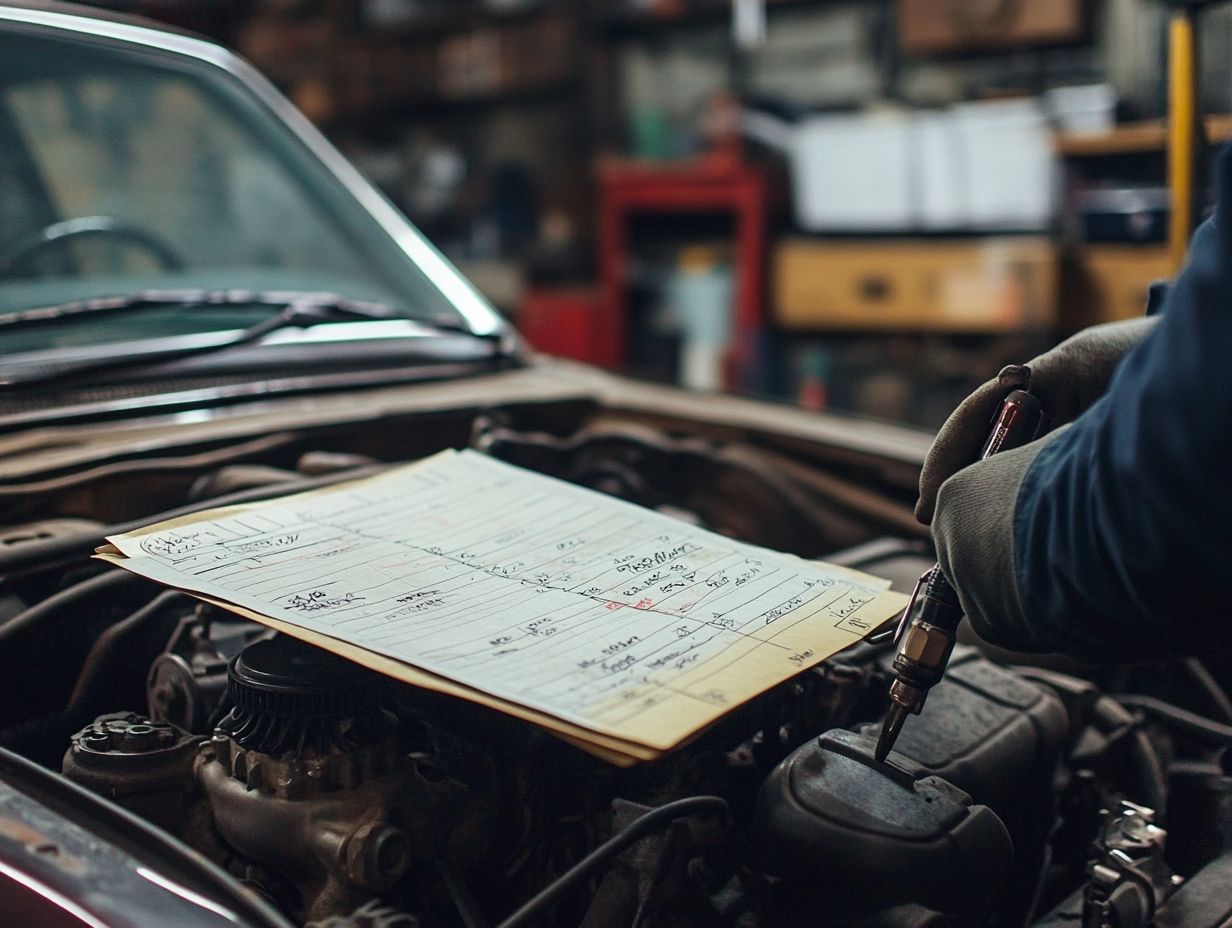
Once you receive the inspection results, act now to tackle any concerns.
Consider developing a maintenance plan that outlines necessary repairs and sets specific timelines for completion. This approach ensures your vehicle remains in optimal condition while enhancing its longevity and performance.
Addressing Immediate Concerns
Addressing immediate concerns from inspection results is essential for your vehicle’s safety and performance. To ensure you tackle safety issues head-on and without delay, consider following a guide on how to use a car inspection checklist effectively.
Determining which repairs need your immediate attention can feel overwhelming. A smart approach is to evaluate the severity of the problems flagged during inspections such as leaks, braking issues, or worn-out tires.
Prioritizing these repairs not only safeguards your personal safety but also prevents further damage, which could lead to costly repair bills later on.
Establishing a robust maintenance schedule that includes regular checks and timely fixes can extend your vehicle’s lifespan. This ultimately provides you with a more reliable and enjoyable driving experience.
Creating a Maintenance Plan
Creating a maintenance plan helps you handle inspection findings step-by-step while keeping your vehicle in optimal condition and compliant with safety regulations. This proactive strategy extends your vehicle s lifespan and enhances road safety.
Your maintenance plan should include key components, starting with detailed inspection checklists that highlight critical areas needing attention.
Scheduling regular maintenance intervals is crucial for catching potential issues early, helping you avoid expensive repairs in the future. Documenting all repairs and maintenance actions creates a valuable history to refer to when evaluating your vehicle s overall condition.
Engaging with repair shops during this planning process allows you to access expert insights tailored to your vehicle s specific needs, ultimately optimizing its performance and reliability.
Frequently Asked Questions
What is a car inspection and why is it important?
A car inspection is a thorough examination of a vehicle’s condition and functionality. It helps identify potential problems and ensures the car’s safety and reliability, which is why what car buyers need to know about inspections is crucial before making a purchase.
How do I prepare for a car inspection?
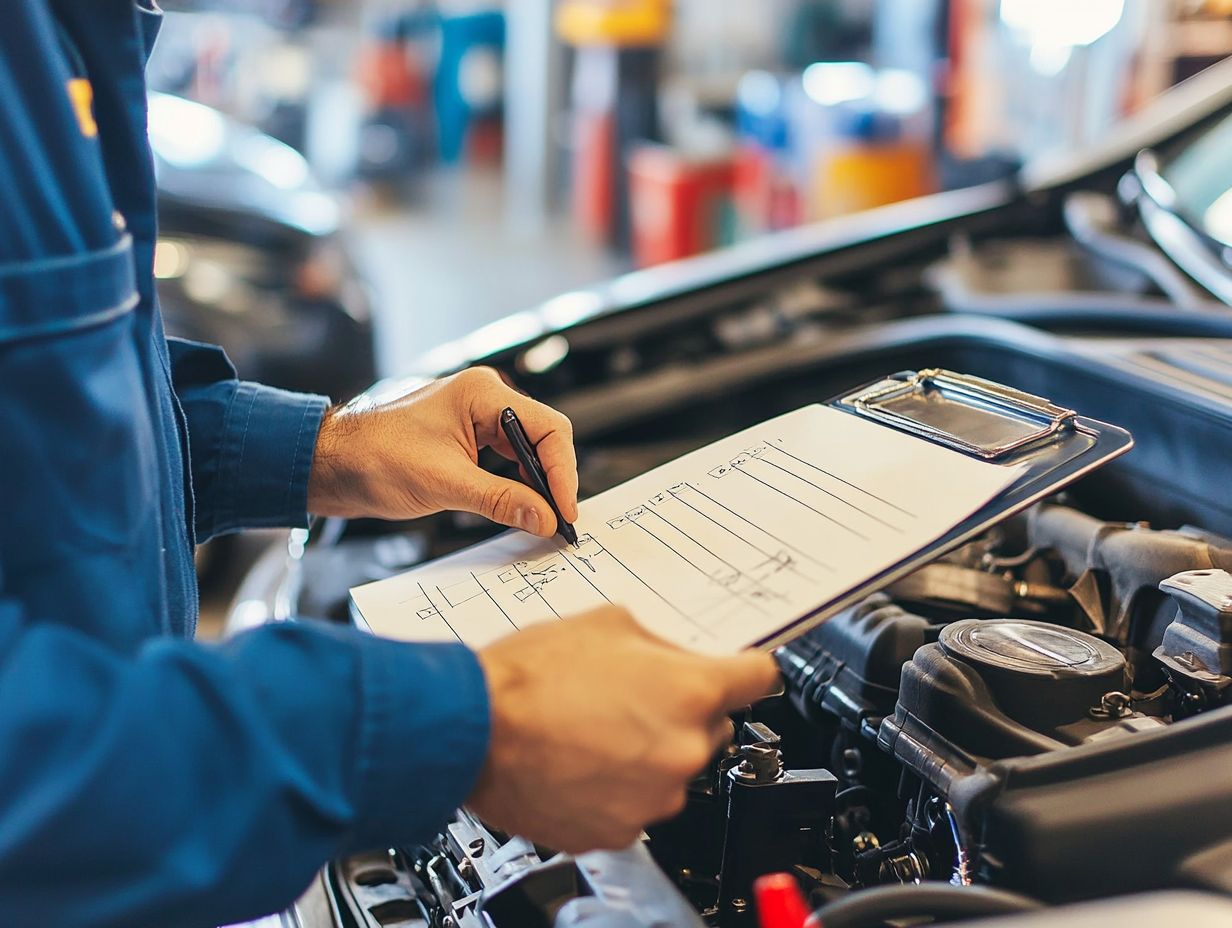
Before the inspection, ensure your car is clean and organized, and that all important documents are accessible. Also, do a quick check of your car’s lights, tires, and fluids to confirm they are in good condition.
What are the common things checked during a car inspection?
Common items checked during a car inspection include the engine, brakes, tires, lights, steering and suspension, exhaust system, and overall body and interior condition.
What does it mean if my car fails the inspection?
If your car fails the inspection, it means there are issues that need to be addressed. These issues may range from minor repairs to major safety concerns. To ensure your vehicle is safe and roadworthy, it’s crucial to follow the best practices for a car inspection and have these problems fixed before driving your car again.
How do I interpret the results of a car inspection?
To interpret the results, carefully review the inspection report. Pay attention to any areas marked as failed or needing repair. For a thorough understanding, check out how to make the most of your car inspection. The report should also include a list of recommended repairs and their urgency.
Can I negotiate the price of a car based on its inspection results?
Yes, you can negotiate the price of a car based on its inspection results. If the inspection reveals major issues, use this information to negotiate a lower price or request the seller to fix the problems before finalizing the purchase.


